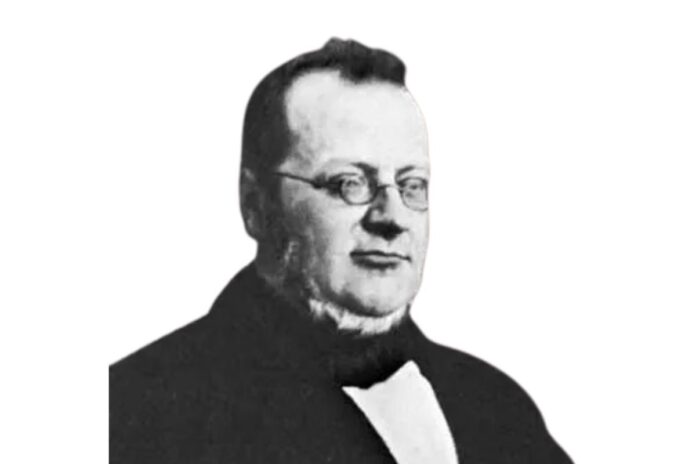Camillo Paolo Filippo Giulio Benso, Count of Cavour (10 August 1810 – 6 June 1861), commonly known as the Count of Cavour, was an influential Italian politician, statesman, businessman, economist, and noble. A leading figure in the movement for Italian unification, he played a pivotal role as Prime Minister of the Kingdom of Sardinia from 1852 until his death in 1861, with a brief resignation in between. Cavour was instrumental during the Second Italian War of Independence and in supporting Giuseppe Garibaldi’s campaigns. Following the declaration of the united Kingdom of Italy, he became the first Prime Minister of the new nation. He passed away just three months into office and did not live to witness the final stages of Italy’s unification, including the Capture of Rome in 1870, which completed the process.
Introduction:
Camillo Benso, Count of Cavour, is one of the most important figures in the history of modern Italy. Known for his intelligence, diplomacy, and strategic thinking, Cavour played a pivotal role in the unification of Italy during the 19th century. His leadership, political maneuvering, and dedication to Italy’s independence have earned him a place as a national hero. In this article, we’ll explore his life, his significant contributions to Italy’s formation, and the lasting impact he had on the country. Whether you’re interested in Italian history or political strategy, Cavour’s journey offers invaluable lessons.
Who Was Camillo Benso, Count of Cavour?
Camillo Benso, born on August 10, 1810, in Turin, was an aristocrat who later became a statesman, politician, and prime minister of the Kingdom of Sardinia. While many historical figures are remembered for their military achievements, Cavour is celebrated for his diplomatic brilliance and political savvy. Unlike other figures in the movement for Italian unification, Cavour focused on consolidating support through diplomacy, alliances, and modernizing reforms, rather than simply relying on military force.
Early Life and Education
Cavour came from a noble family and was educated in a way that cultivated his natural talents for leadership and governance. Initially interested in military service, he later moved towards a career in politics, recognizing the influence he could wield as a leader rather than a soldier.
Camillo Benso’s Role in the Unification of Italy
Cavour’s political career and influence reached their peak when he became Prime Minister of the Kingdom of Sardinia in 1852. His key role in the Italian unification, known as the Risorgimento, was marked by strategic diplomacy, alliances, and modernizing policies that helped to unite the fragmented Italian states.
The Key Strategies:
- Diplomatic Alliances:
One of Cavour’s greatest strengths was his ability to form alliances with other European powers. He famously allied with France in 1858, through the Plombières Agreement, which set the stage for the wars that would lead to Italy’s unification. - Military Action:
Though Cavour preferred diplomacy, he did not shy away from military action when necessary. The Second Italian War of Independence (1859) and subsequent conflicts were pivotal in gaining territories such as Lombardy, which helped solidify the movement for a united Italy. - Modernizing Reforms:
As Prime Minister, Cavour worked tirelessly to modernize Sardinia’s economy, military, and infrastructure. His commitment to economic reforms, such as promoting railroads and industry, laid the foundation for a more united and modern Italian state.
Key Achievements of Camillo Benso, Count of Cavour
Cavour’s leadership wasn’t just limited to foreign policy and military strategy. He also played a significant role in shaping Italy’s internal structure, influencing policies that promoted economic growth and modernization.
1. The Expansion of the Kingdom of Sardinia
Under Cavour’s leadership, the Kingdom of Sardinia expanded its territory, bringing in crucial regions such as Lombardy, Venetia, and eventually, the Kingdom of the Two Sicilies. These territorial gains set the stage for the unification of Italy.
2. Advocacy for Constitutional Government
Cavour was a strong proponent of constitutional monarchy. He believed in balancing monarchy with liberal reforms, working towards a system of governance that would eventually form the basis of the Kingdom of Italy.
3. International Influence
Cavour’s diplomatic prowess was also recognized on the international stage. His ability to manage foreign relationships, particularly with France and Britain, played a significant role in the success of the unification process.
The Legacy of Camillo Benso, Count of Cavour
Camillo Benso’s death on June 6, 1861, came just a few years before Italy was fully unified, but his contributions laid the groundwork for a united nation. His vision of Italy as a modern, unified state would eventually come to fruition through the efforts of his allies and successors, including Giuseppe Garibaldi and Victor Emmanuel II.
Key Legacy Points:
- Architect of Italian Unification: Cavour’s policies and leadership helped bring together various fragmented Italian states into one unified country.
- Influence on Modern Politics: His diplomatic skills and emphasis on modernization influenced political strategies for generations.
- National Hero: Today, Cavour is remembered as one of Italy’s founding fathers, and his legacy is celebrated in monuments, schools, and institutions across the country.
Frequently Asked Questions About Camillo Benso, Count of Cavour
What were Camillo Benso’s main contributions to Italy?
Cavour’s main contributions were his diplomatic efforts to unite Italy, his leadership in expanding the Kingdom of Sardinia, and his role in securing key alliances, particularly with France.
Was Cavour a military leader?
While Cavour was not a military leader in the traditional sense, he played a key role in coordinating military action to achieve the unification of Italy. He recognized the importance of both diplomacy and military force.
How did Cavour’s political reforms impact Italy?
Cavour’s political reforms, including his support for constitutional government, modernized Italy’s infrastructure, economy, and governance, making it more cohesive and competitive on the European stage.
Wrapping Up: Camillo Benso’s Enduring Legacy
Camillo Benso, Count of Cavour, was an extraordinary statesman whose influence continues to be felt in modern Italy. His diplomatic strategies, commitment to modernization, and tireless efforts toward unification cemented his place as one of the most influential figures in Italian history. Today, Italy remains a unified nation, in no small part thanks to Cavour’s vision and leadership. His legacy is a testament to the power of diplomacy, determination, and forward-thinking governance.
By showcasing Cavour’s key accomplishments and reflecting on his impact, this article highlights not only his contributions to Italian history but also his lasting influence on modern political strategies. The story of his leadership reminds us that sometimes, the greatest revolutions are not won with force, but with diplomacy and vision.




